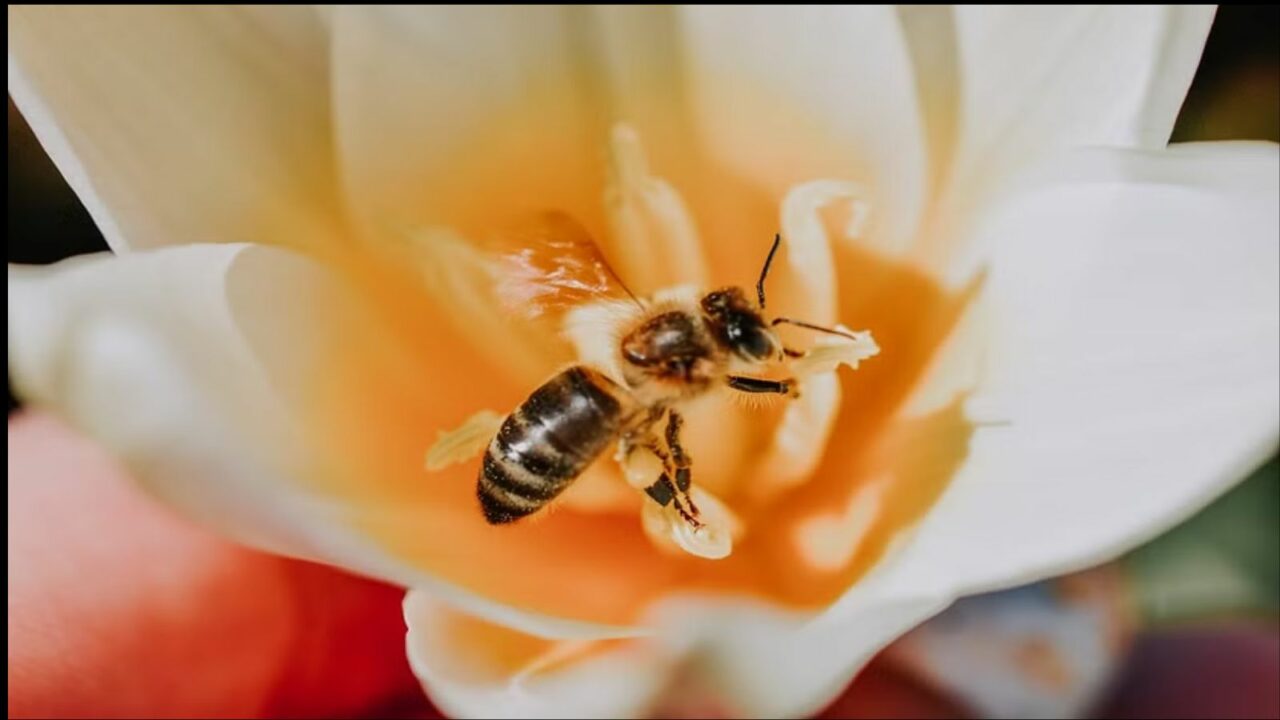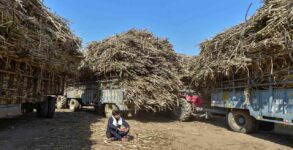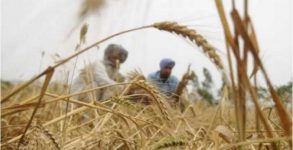Understanding the Decline of Pollinating Insects: A worldwide study says that the loss of pollinators due to climate change, habitat loss, monoculture farming, and pollution is very bad for growing tropical crops. India, China, Indonesia, Brazil, and the Philippines are especially at risk.
Understanding the Decline of Pollinating Insects: How Will it Impact Crops?
Bee colonies in the Hanumangarh area of Rajasthan, India, have produced much less honey over the past 25 years. During the mustard growing season (October to March), they used to make 50–60 kg of honey, but now they only make 15 kg.
Beekeepers and farmers in several Indian states, such as Rajasthan, Uttar Pradesh, Madhya Pradesh, and Haryana, are also worried about the drop in honey production. It’s not just happening in Hanumangarh.
Several local reports and regional studies have pointed out that bee populations and honey output are going down. For example, a study done in Bengaluru in 2022 found that the number of bees had dropped by 20%, and another study found that giant honeybees are now considered rare in India.
A new global study in Science Advances has set off warning bells by saying that the loss of pollinators could threaten the production of tropical crops.
By 2050, the loss of insect pollinators will be the biggest threat to food production in sub-Saharan Africa, South America, and Southeast Asia, according to a study by researchers from the Natural History Museum and University College London.
King George Medical University canteen fined after insects found in food
China, India, Indonesia, Brazil, and the Philippines are the most at risk when it comes to total output. It is thought that cocoa is the most at risk, especially in Africa. Mangos in India and watermelons in China are next on the list.
Concern should be raised about the loss of pollinators because these insects are very important for plant growth. Pollinators, like bees and moths, visit flowers to eat nectar and pollen. They make it easier for pollen to move from one flower to another, which is important for making food and seeds.
The US Department of Agriculture says that about 75% of the world’s blooming plants and 35% of its food crops depend on animal pollinators to ensure their reproduction.
In India’s Himalayan environment, moths are very important pollinators. A study from 2022 showed that they help 21 plant families in Sikkim and Arunachal Pradesh reproduce.
Also, bees are needed to pollinate crops on 50 million hectares of land in India. But their numbers are going down, which is lowering crop yields and could mean food shortages and lost income for small-scale farmers in particular.
Pollinators are going extinct because of a number of things. Global changes in climate and land use have hurt important tropical crops by lowering the number of pollinating insects. This is especially true when temperatures are unusually high and growing plants are hard to find.
Destruction of habitats and bad land use habits like overgrazing, pesticides, and farming with only one crop have also contributed. India has lost a lot of forest cover because of growing cities, more farming, and cutting down trees. This has destroyed and broken up important sites for pollinators.
Government programs that support genetically modified (GM) crops and the Green Revolution have made monotonous farming more appealing. This has made biodiversity harder to understand and decreased the number of pollinators and natural pest control insects. Pest numbers also rise in monoculture areas, which puts pollinators at even greater risk because these pests carry diseases.
Also, monoculture has made farming more intensive, which has increased the use of synthetic agrochemicals like fertilizers and pesticides, which keep bees from visiting crops and mess up the whole food chain.
A study done in India in 2011 found that the area used for pollinator-dependent crops went up at first but then went down after 1999. Also, the relative yield growth rate of these crops slowed down after 1993, which shows that pollinators are limited.
Pollution in the environment, such as sewage, landfill leachates, air pollution, and industry chemicals, has also made it harder for insects to pollinate plants. In conclusion, stopping or possibly even reversing the decline of these important pollinating insects will take global action to slow down climate change, protect natural habitats, and lessen the effects of land use changes.
















